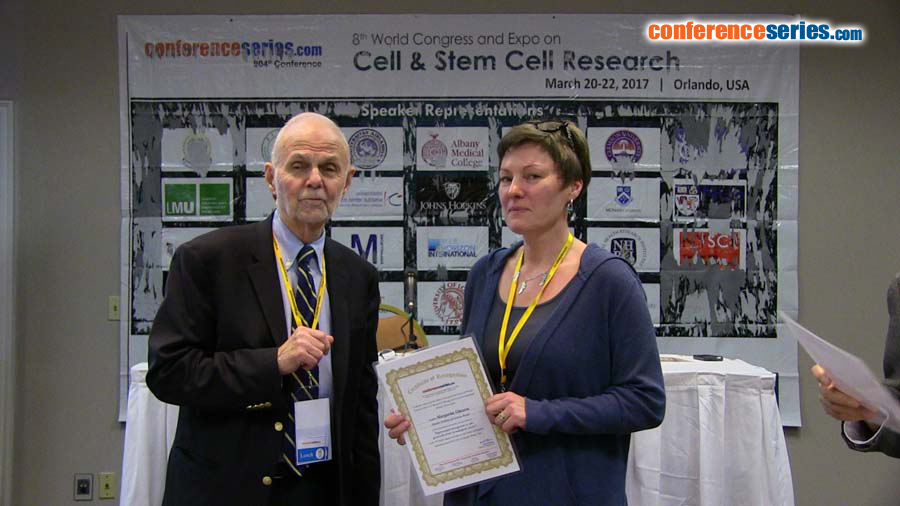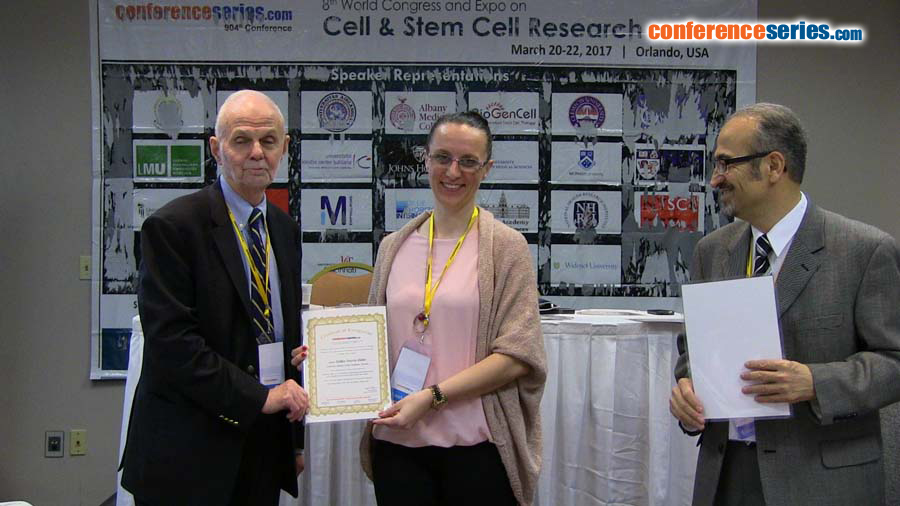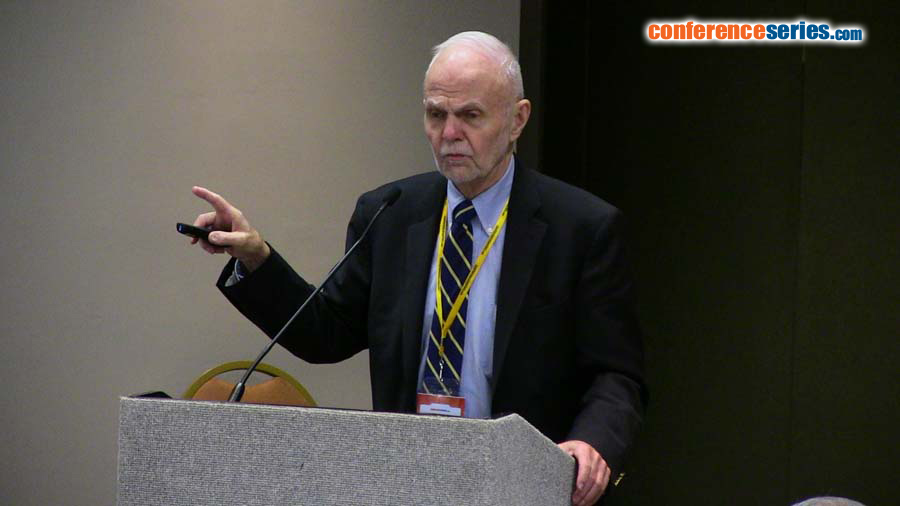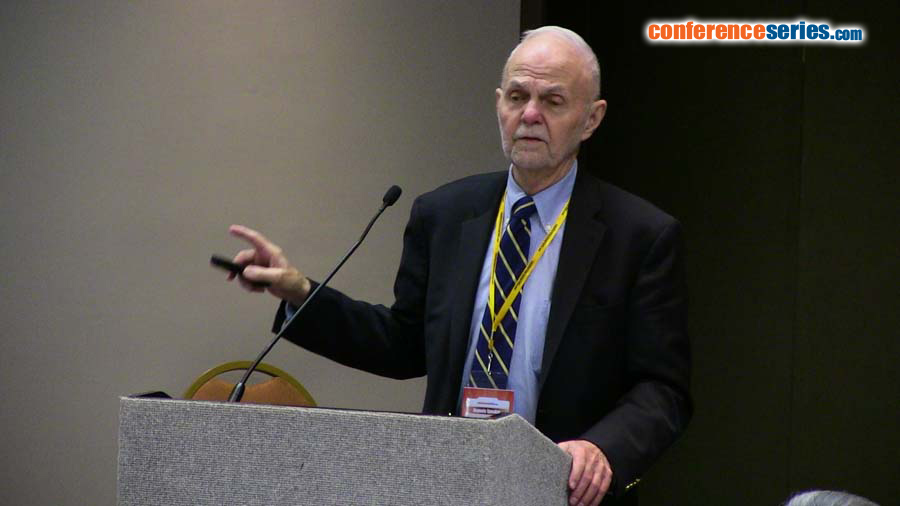
Paul J Davis
Albany College of Pharmacy and Health Sciences, USA
Title: Nano-diamino-tetrac (NDAT; Nanotetrac) acts at its target on integrin ï¡vï¢3 in human glioblastoma xenografts to induce necrosis via anti-angiogenesis and apoptosis
Biography
Biography: Paul J Davis
Abstract
Clinical evidence in a limited number of patients supports the concept that glioblastoma multiforme (GBM) is a thyroid hormone-dependent cancer. In vitro evidence indicates that L-thyroxine (T4), the principal secretory product of the thyroid gland, at physiological concentrations stimulates proliferation of glioma/GBM cancer cells via a polyfunctional cell surface receptor for T4 on the extracellular domain of cancer cell plasma membrane integrin avb3. This action of T4 is blocked by nanoparticulate tetraiodothyroacetic acid (Nanotetrac, Nano-diamino-tetrac, NDAT). Tetrac in this NDAT formulation is covalently bound via a diaminopropane linker to a poly(lactic-co-glycolic acid) (PLGA) nanoparticle. We have examined histopathologically the induction by NDAT of devascularization, of necrosis and apoptosis in U87MG human GBM cell xenografts in nude mice. Treatment regimen was 1 mg tetrac equivalent/kg body weight s.c. as NDAT daily X10 d, begun 2 d following tumor cell implantation when tumor volume estimates were 350 mm3. Xenografted control animals received void nanoparticulate PLGA. Xenograft weight in treated animals at sacrifice was reduced by 50% (P<0.01). Tumor area measured in histologic sections was reduced by 80% in treated animals compared to controls (P<0.001). Blinded analysis of changes in histologic slides from xenografts revealed essentially complete loss of tumor blood vessels with NDAT (P<0.001 vs. control xenografts). This finding was associated with no evidence of hemorrhage. Eighty percent of the cell population in grafts was either necrotic or apoptotic (P<0.001 vs. control) and cell density was reduced by 60% vs. control tumors (P <0.001 vs. control). Mitotic figures/field examined was reduced by 80%. In summary, NDAT, acting at the thyroid hormone-tetrac receptor on the extracellular domain of integrin avb3, devascularized human GBM xenografts with resultant widespread necrosis. In the tumor cell population that was not necrotic, drug-induced apoptosis was documented. The thyroid hormone receptor on avb3 in U87MG cells is a single endocrine target with multiple downstream functions that are exploited by anticancer and anti-angiogenic actions of NDAT.
Speaker Presentations
Speaker PPTs Click Here




